Interview with Valentine Gauthier, founder of the eponymous brand
Designers
Valentine Gauthier or ethics as a prequisite
Valentine Gauthier founded her eponymous women's ready-to-wear brand in 2007, followed by her first boutique opening in the Marais in 2009. She is the pioneer for fair, transparent, eco-friendly and humane fashion. Very early on, strong ethical values were at the heart of her creative process but far from it, she wishes to make it a pillar of her communication. We look to Valentine Gauthier above all for beautiful pieces, that last a lifetime. She claims “to be rather a ‘clothes maker’ than a ‘fashion designer.” Interview :
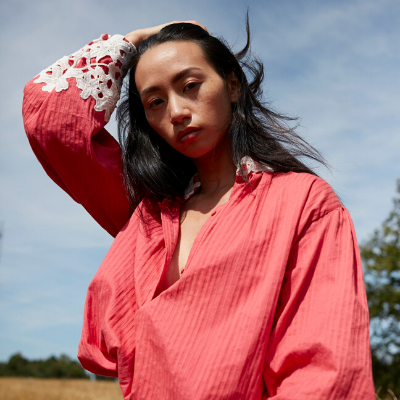
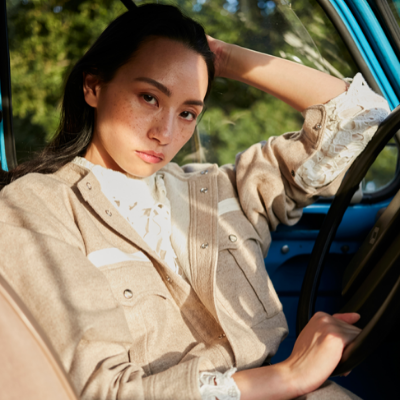
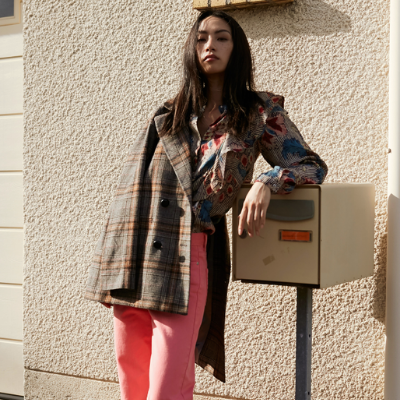
How did you brand come to life ?
Having studied geo-ethnology I was destined to become an ecological engineer, but I missed designing a lot and I found that fashion allowed me to reach people on the streets, to escape a purely artistic world. So, I created the Chardon Savard atelier, working alongside Martin Margiela as a small hand in his workshop: I was then Artistic Director for a homeware concept store. Finally, it was the International Festival for Young Fashion Designers of Dinard that gave me my start.
How did you get involved in sustainable fashion ?
It was an obvious decision! It is not a marketing strategy, it’s fashion's turn. We have to re-examine things as they were before, in the end it’s not revolutionary. During my training at Chardon Savard, I was shocked to see that environmental awareness was non-existent in the textile industry. I went to Uruguay to knit handmade sweaters in a women’s association. It seemed natural to me, to work with artisans like that.
Describe your brand in 3 words.
Can business truly be ethical ?
If business means making a large profit and having a huge bank account, then no! However, if business is living properly with a small team, fair pricing and high quality goods, then yes it is possible !
What are your inspirations ?
A bit of everything! I try to create a theme but I think we have to adapt with the seasons. We have to stop presenting shorts in January and furs in July! I can add pieces to my collections if I want to because I have a shop and I am familiar with my entire production chain. Moreover, we work directly with one another, in a close-knit system: without middlemen and with manufacturers just outside of Paris. We also collaborate with a women's association in India, which brings us beautiful craftsmanship such as embroidery.
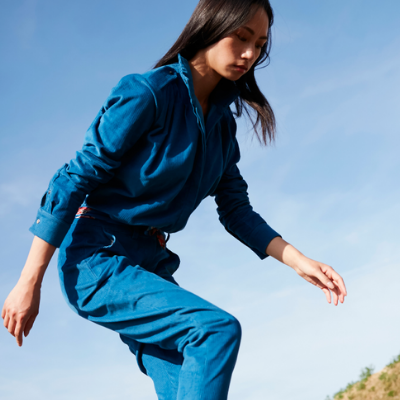
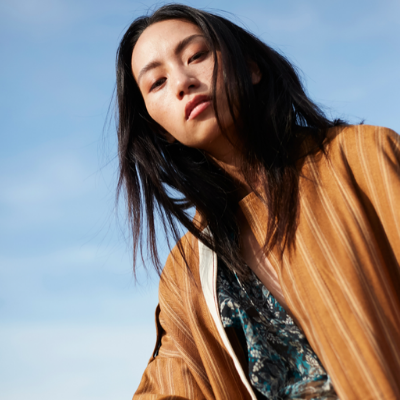
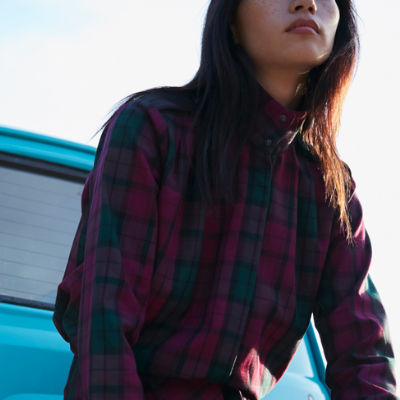
Why Impact ?
Because the system has to change, and this will only work if brands are wholly invested in the cause.
On the consumer side of things, what noteworthy changes have you noticed ?
My clients come for my style and some more faithful ones are becoming more interested in how I work, because we have convinced them of the importance. We still need to increase the consumer awareness regarding materials, so that they are able to recognise the quality of a garment and in turn what it is made out of. We use fabrics made by historic fashion houses and we are very selective about what they offer us. We avoid high-polluting materials and prioritise recycled wool. We generally prefer natural, recycled and GOTS (organic fabrics) certified materials.
What challenges have you experienced daily ?
We are a small company and so we cannot produce vast quantities of clothing. We therefore have to find manufacturers who will agree to produce limited series as well as fabric manufacturers !
What do you see for the future of fashion ?
More sustainable, obviously !
Most memorable encounter and your favourite things at Impact ?
I discovered the trainer brand OTH, who make their soles out of car tyres.
Describe IMPACT in 3 words
What projects are you working on? What do you have planned for the future of your brand ?
The future, is to stop harming ourselves for a start. You have to ask yourself the right questions and not just in fashion: you also have to ask yourself how you interact with the planet and your children. We need to rethink the way we consume. I listened to Michel Auboule who talked about holistic medicine and explained how to be in tune with oneself so as not to get sick. It is also about being in tune with your environment. This also applies to fashion and all other sectors. I consider that every object has a soul that is transmitted. Some customers tell me that their daughters borrow some of my pieces from them, which took a long time to design: the opposite of big brands.